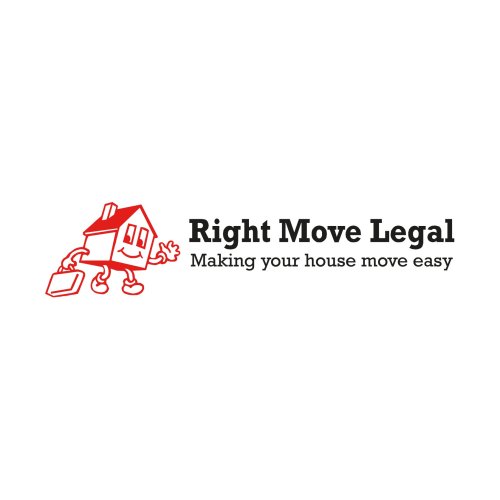Best Housing, Construction & Development Lawyers in New Zealand
Share your needs with us, get contacted by law firms.
Free. Takes 2 min.
Free Guide to Hiring a Real Estate Lawyer
Or refine your search by selecting a city:
List of the best lawyers in New Zealand
About Housing, Construction & Development Law in New Zealand
Housing, Construction & Development law in New Zealand encompasses a wide range of legal matters related to the building of homes, residential developments, and infrastructure projects. This area of law is crucial in ensuring that construction practices adhere to national standards and regulations, promoting safety, and protecting the rights of property owners and developers. The Building Act 2004 and various associated regulations serve as the cornerstone for guidelines and standards in the industry, thereby influencing every aspect from initial design to final construction.
Why You May Need a Lawyer
Legal guidance can be essential in navigating the complexities of the Housing, Construction & Development sector. Common situations requiring legal assistance include:
- Disputes between homeowners and contractors regarding the quality of construction work.
- Issues related to zoning, land use, and resource consents required for development projects.
- Understanding and negotiating the terms within construction contracts.
- Navigating insurance claims and warranties for construction defects.
- Compliance with building codes and facing potential penalties.
Local Laws Overview
In New Zealand, several key laws and regulations govern the Housing, Construction & Development sectors. Some of the most pertinent include:
- Building Act 2004: Governs the building work and ensures safety, accessibility, and sustainability of building structures.
- Resource Management Act 1991: Oversees the use of land ensuring that development does not negatively impact the environment.
- Unit Titles Act 2010: Manages the rights and responsibilities of unit owners in multi-unit developments.
- The Construction Contracts Act 2002: Provides a framework for resolving payment disputes and facilitates timely payments between parties.
Frequently Asked Questions
What permits are required for building a new home?
In New Zealand, a building consent is usually required for most new constructions. Additionally, resource consents might be necessary if your project impacts the environment or breaches local zoning rules.
How can I resolve a construction dispute?
It's best to address disputes through mediation or arbitration as outlined in your construction contract. If these methods fail, litigation might be necessary, for which consulting a lawyer becomes essential.
What can I do if my newly constructed home has defects?
Check the warranties provided by the builder and contact them for repairs. If issues persist, consider seeking legal counsel to explore your rights under the Consumer Guarantees Act and the Building Act.
How do I know if a property is zoned for residential development?
Local council plans and zoning maps can provide guidance on whether a property is zoned for residential development. Consulting with council planning departments can also be helpful.
What is a LIM report?
A Land Information Memorandum (LIM) report provides valuable information related to the land and its history, including zoning, past consents, and potential hazards.
Are there any restrictions on property development near waterways?
Yes, developments near waterways often require special considerations and consents to protect environmental quality under the Resource Management Act.
What is a building code compliance certificate?
It's a certificate issued when building work complies with the building consent, ensuring that the construction meets the Building Code requirements.
How is noise control managed on building sites?
Local councils implement noise control measures that construction sites must adhere to, balancing working requirements with residential comfort.
Can I build on rural land without restrictions?
Building on rural land may still require both building and resource consents, ensuring alignment with any local and environmental regulations.
How do unit titles work in multi-unit developments?
Unit titles refer to shared ownership in a building, allowing specific rights and responsibilities for unit owners. This can include shared amenities and obligations for maintenance fees.
Additional Resources
If you need more information, the following organizations and resources may be helpful:
- Building and Housing: A division of the Ministry of Business, Innovation & Employment, providing guidance on building regulations.
- Citizens Advice Bureau: Offers free advice and support for a range of legal matters.
- New Zealand Law Society: Provides resources and can help connect you with certified legal professionals.
- Local Council Offices: Offer guidance on zoning, building consents, and resource consents.
Next Steps
If you're in need of legal assistance within the Housing, Construction & Development sector, consider the following steps:
- Identify your specific legal issue to determine the potential areas of law involved.
- Gather all related documentation, including contracts, consent forms, and correspondence.
- Consult with a legal professional experienced in construction and property law.
- Explore mediation and dispute resolution options as primary steps.
- Prepare for potential formal litigation if initial dispute resolution efforts fail.
Being proactive and informed can help navigate the legal landscape effectively, ensuring that your rights and interests are safeguarded throughout the process.
Lawzana helps you find the best lawyers and law firms in New Zealand through a curated and pre-screened list of qualified legal professionals. Our platform offers rankings and detailed profiles of attorneys and law firms, allowing you to compare based on practice areas, including Housing, Construction & Development, experience, and client feedback.
Each profile includes a description of the firm's areas of practice, client reviews, team members and partners, year of establishment, spoken languages, office locations, contact information, social media presence, and any published articles or resources. Most firms on our platform speak English and are experienced in both local and international legal matters.
Get a quote from top-rated law firms in New Zealand — quickly, securely, and without unnecessary hassle.
Disclaimer:
The information provided on this page is for general informational purposes only and does not constitute legal advice. While we strive to ensure the accuracy and relevance of the content, legal information may change over time, and interpretations of the law can vary. You should always consult with a qualified legal professional for advice specific to your situation.
We disclaim all liability for actions taken or not taken based on the content of this page. If you believe any information is incorrect or outdated, please contact us, and we will review and update it where appropriate.
Browse housing, construction & development law firms by city in New Zealand
Refine your search by selecting a city.

















